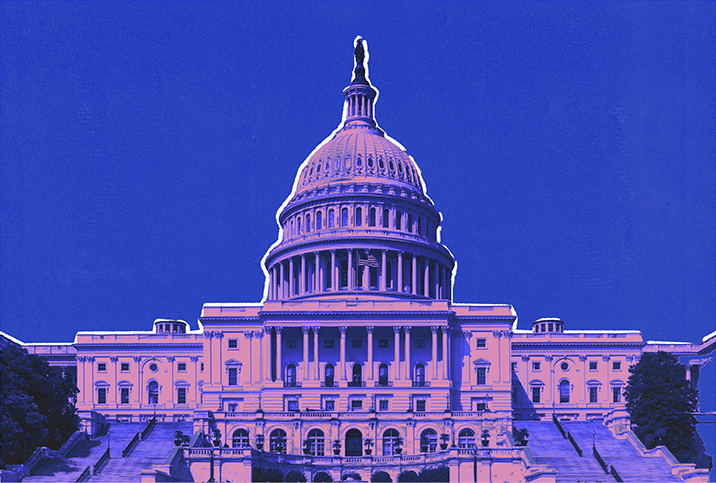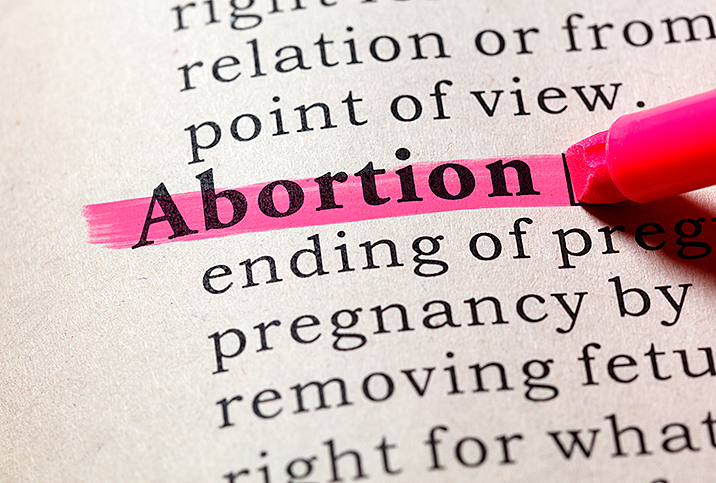The State of Abortion Across the Nation

A near-complete ban on abortion was passed March 22, 2022, by the Oklahoma House of Representatives. If passed in the state Senate, the law would be the strictest in the country—even more so than Texas' six-week abortion ban—and would go into effect immediately.
Oklahoma House Bill 4327 bans a physician from performing or inducing an abortion at any point in a person's pregnancy unless it is a lifesaving measure. The bill, similar to Texas' abortion ban, also allows private citizens to sue anyone who aides or facilitates an abortion for up to $10,000.
The antiabortion legislation doesn't stop in Oklahoma. A slew of bills has been introduced across the country since Texas passed Senate Bill 8 on Sept. 1, 2021.
"[H.B. 4327] poses an imminent and grave threat to abortion access in Oklahoma and across the region," said Elisabeth Smith, director of state policy and advocacy for the Center for Reproductive Rights, in a statement to Planned Parenthood. "Abortion rights activists have been warning of this nightmare for months: These bounty hunter laws will have a domino effect across the country, as more and more states ban abortion nearly entirely while Roe v. Wade is still the law of the land."
The sheer number of bills related to abortion make it difficult to cover every aspect, but this is some of the legislation passed across the country in the past 30 days.
Florida
Republican Gov. Ron DeSantis is expected to sign a bill banning abortion after 15 weeks of pregnancy, which would be the strictest abortion ruling since Roe v. Wade in 1973. House Bill 5, titled "Reducing Fetal and Infant Mortality," was approved March 3, 2022, by the Florida Senate.
The bill does not make exceptions in situations of incest, rape, human trafficking or mental health. H.B. 5 does, however, allow abortion for medical emergencies to save the mother from death or physical impairment or if the fetus has a fatal abnormality. In all cases, two physicians must confirm the exemption in writing.
If signed by DeSantis, the bill would go into effect July 1, 2022.
Wyoming
The Wyoming Senate on March 11, 2022, passed House Bill 92, which would ban abortions in the state five days after the U.S. Supreme Court overturns Roe v. Wade—if it chooses to do so.
Abortion would be restricted to only "when necessary to preserve the woman from a serious risk of death or of substantial and irreversible physical impairment of a major bodily function, not including any psychological or emotional conditions," according to the bill.
Senate File 83, a bill intended to ban chemical abortion, was introduced in early March, but the House declined to consider it.
Idaho
Idaho passed a six-week abortion ban March 23, 2022, with Senate Bill 1309.
The law is similarly modeled after the Texas six-week ban, however, in Idaho, only family members of the person who received the abortion will be allowed to sue—as opposed to any private citizen. About two-thirds of abortions in Idaho occur after the six-week mark, according to the Centers for Disease Control and Prevention (CDC).
The law does have exceptions for people who have become pregnant through rape or incest, but to qualify for the exception, the individual must have previously reported the attack to law enforcement.
The law goes into effect April 22, 2022.
South Dakota
South Dakota Gov. Kristi Noem, a Republican, signed House Bill 1318 into law March 23, 2022, adding new restrictions for medical abortions. H.B. 1318 is not in effect because of an injunction issued by U.S. District Judge Karen Schreier, but Noem has appealed the ruling.
The law would require women to visit a clinic three times to receive mifepristone and misoprostol, the two pills necessary for abortion. Currently, women must visit the clinic twice before they can terminate a pregnancy. H.B. 1318 would also prohibit medical abortion by telemedicine.
A separate bill, H.B. 1113, was also signed into law, making it a felony to coerce a woman into an abortion.
Arizona
The Arizona Legislature banned abortion after 15 weeks when it passed Senate Bill 1164 on March 24, 2022. The bill is expected to be signed into law by Republican Gov. Doug Ducey. The language of S.B. 1164 mirrors Dobbs v. Jackson Women's Health Organization, the Mississippi law being considered by the U.S. Supreme Court, and contains no exceptions for incest, rape or medical emergency.
A proposal to ban abortion after six weeks did not advance.
Dobbs v. Jackson Women's Health
The U.S. Supreme Court is considering the constitutionality of a 2018 Mississippi law that banned abortion after 15 weeks of pregnancy. Oral arguments for Dobbs v. Jackson Women's Health Organization were held in December 2021, and the court is expected to make a ruling by June 2022.
Similar to Wyoming's recent legislation, several other states have "trigger bans" in place to outlaw abortion if the Supreme Court rules to overturn Roe v. Wade.
Blue states, however, are fighting back. Oregon, Washington and California have all moved to expand financial support for abortion. In March 2022, Colorado's legislature approved the Reproductive Health Equity Act, which solidifies protection for abortion in the state. If signed by the governor, as expected, Colorado would join 15 other states that have similar laws.
Abortion is a medical procedure that is currently illegal or restricted in some portions of the United States. For more information about the legality of abortion in your area, please consult a local healthcare provider.


















